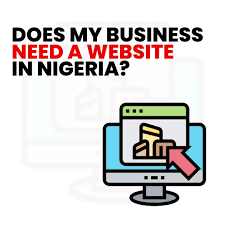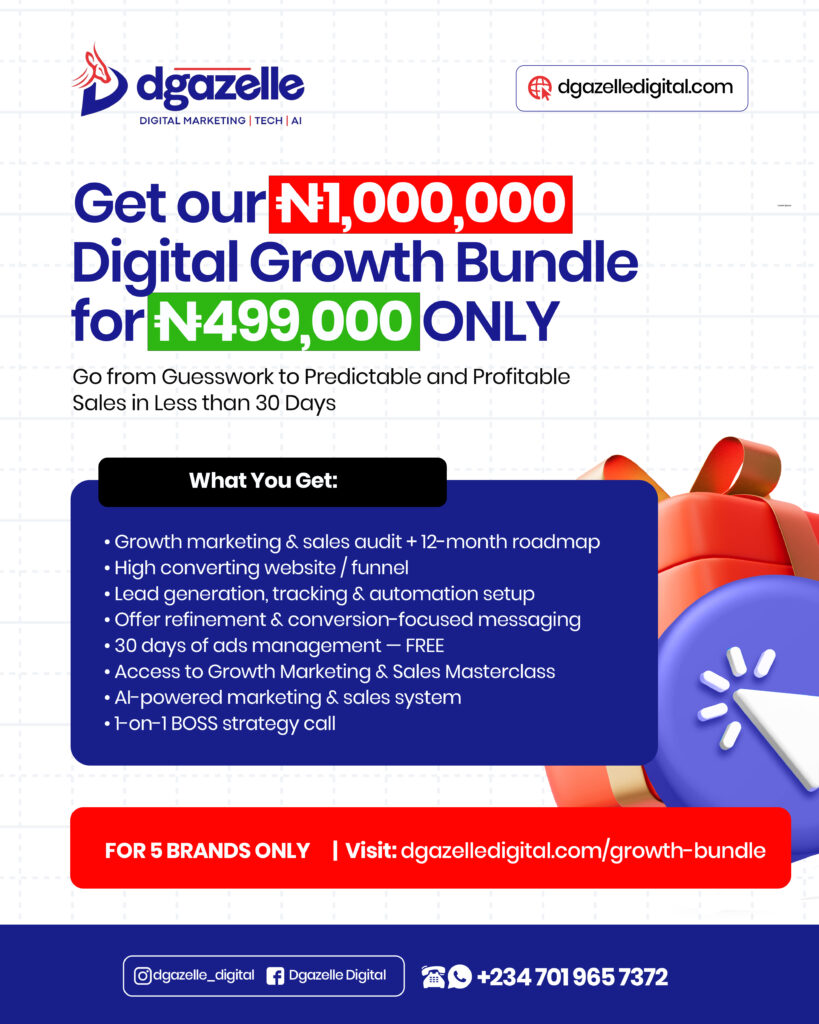Introduction
Picture this: you’re the owner of a Small and Medium-sized Enterprise in Nigeria. You’ve built a reputable business with quality products and services, a loyal local customer base, and a strong presence in your community. But, here’s the catch: you don’t have a website. In today’s digital age, that’s like having a store but not turning on the lights.
Are you ready to unlock the true potential of your SME and catapult it into the digital era? If the lack of a website is holding you back, you’re not alone, in this article, we’re going to explore four compelling reasons why your Nigerian SME desperately needs a powerful website to thrive in the 21st century.
By the end of this read, you’ll understand the vital role a website plays in your business’s journey. Don’t let your competition leave you in the dust; let’s dive into the world of possibilities together.

I. Expanding Your Market Reach
One of the most compelling reasons to have a powerful website for your SME in Nigeria is the potential to expand your market reach. Without a website, your business is limited to its immediate physical location, and your reach is restricted to those who happen to pass by or hear about you through word of mouth.
With a website, the world becomes your oyster. You can showcase your products and services to a global audience. Whether you’re selling handmade crafts, delicious local delicacies, or offering specialized services, customers are showing increasing interest in online marketplace and a website allows these customers from across Nigeria and beyond to discover your business. This, in turn, can lead to increased sales, revenue, and growth.
II. Building Credibility and Trust
In the digital age, a well-designed and informative website is synonymous with professionalism. It’s your virtual business card and a 24/7 sales representative. Potential customers often turn to the internet first when seeking products or services, and a powerful website can be the difference between building credibility and being dismissed as unprofessional.
A website allows you to convey essential information about your SME, such as your history, mission, values, and customer testimonials. It’s a platform to showcase your expertise, establish trust with your audience, and demonstrate that you’re a legitimate and reliable business.
III. Marketing and Promotion
Marketing your SME effectively is crucial to attracting and retaining customers. A powerful website is a central hub for all your digital marketing efforts. Here’s how it can transform your marketing strategy:
Content Marketing: Through a blog or articles section on your website, you can provide valuable content to your audience. This not only helps educate your customers but also positions your business as an authority in your industry. This, in turn, can drive organic traffic to your website.
Email Marketing: With a website, you can collect email addresses and build a list of engaged customers. You can send them newsletters, special promotions, and updates to keep them informed and connected to your business.
Social Media Integration: A website can seamlessly integrate with your social media platforms. This allows you to share content and updates with your social media audience while directing them back to your website for more information and conversions.
SEO (Search Engine Optimization): A well-optimized website is more likely to appear in search engine results, making it easier for potential customers to find you online. This is a game-changer in Nigeria’s competitive business landscape.
Ready to supercharge your marketing and promotion efforts? We can help you create a powerful website that serves as the cornerstone of your digital marketing strategy. Contact us to get started.

IV. Improved Customer Engagement
Engaging with your audience is crucial for building strong customer relationships. A powerful website offers various tools and features that enhance customer engagement:
Contact Forms: Customers can easily get in touch with you through contact forms on your website. Whether they have questions, requests, or feedback, a website ensures that their messages are seen and addressed promptly.
E-commerce and Online Sales: If you offer products, a website can facilitate online sales, providing convenience to your customers. They can browse your offerings, make purchases, and have products delivered to their doorstep.
Interactive Features: Interactive elements like quizzes, surveys, and chat support can engage visitors and encourage them to stay longer on your website, increasing the chances of conversion.
Content Sharing: Your website can act as a content hub, where you share valuable resources, guides, and tips related to your industry. This can help educate your audience and keep them coming back for more.
Call to Action: Ready to boost customer engagement and build stronger relationships? Let us help you create a powerful website that fosters meaningful interactions with your audience. Contact us to get started.
Conclusion
Your SME in Nigeria deserves every opportunity to thrive and succeed in today’s digital world. A powerful website can be the catalyst for achieving your business goals. It expands your market reach, builds credibility and trust, transforms your marketing and promotion, and improves customer engagement – all crucial elements for success.
Don’t let the absence of a website hold your business back. Reach out to us today to discuss how we can help you create a powerful website that’s tailored to the unique needs of your Nigerian SME. Your journey to a compelling online presence begins here. Don’t miss out on the opportunities waiting for you – seize them with a powerful website!






